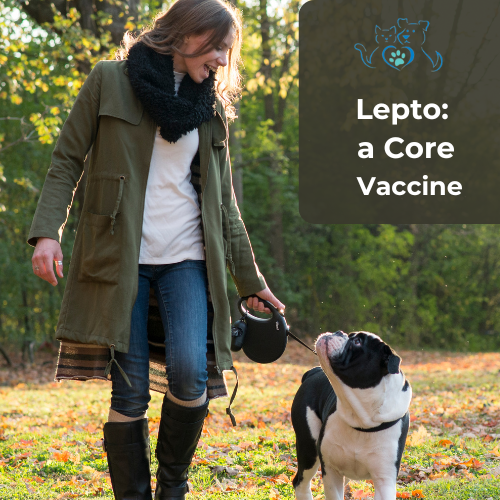When you visit our clinics with your doggo, you've most likely heard our team members talk about the Lepto Vaccine. We are passionate about protecting you and your pets and Leptospirosis is now a very important part of staying healthy.
What is Leptospirosis?
Leptospirosis is a bacteria found in the urine of wildlife that can cause long-term health problems. This disease can cause hepatitis and kidney failure and can be fatal. It is considered zoonotic which means it can transmit from dogs to humans. Some dogs can shed the bacteria and not show any symptoms of being sick. All dogs are at risk of leptospirosis, regardless of geographic location, lifestyle, or the time of year.
Fortunately, a vaccination for our furry companions is available to protect against leptospirosis or “lepto”. You may see this on your vaccination record as the “L” is the DHLPP or DHPP +L.
Lepto is found all though out the US and the AAHA has now categorized lepto as a core vaccination along with Rabies and distemper/parvo.
Spread and Risk
The risk for leptospirosis is higher after hurricanes, heavy rain, or flooding. Animal urine in the soil and other surfaces can get into floodwater or rainwater, contaminating them and other natural water sources like streams.
What Animals can Spread Lepto?
Rodents
- Guinea pigs
- Hamsters
- Rats/Mice
- Squirrels
- Moles
- Shrews
- Gerbils
Wild animals
- Raccoon
- Skunk
- Opossum
- Foxes
- Deer
- Rabbits
Farm animals
- Cows
- Horses
- Sheep
- Goats
- Pigs
FAQ’s
- Leptospirosis is known as Weil's disease in humans.
- About 1 million cases in people occur around the world each year, with nearly 60,000 deaths.
- Lepto can replicate in water-logged soil
- Lepto can survive freezing!!

